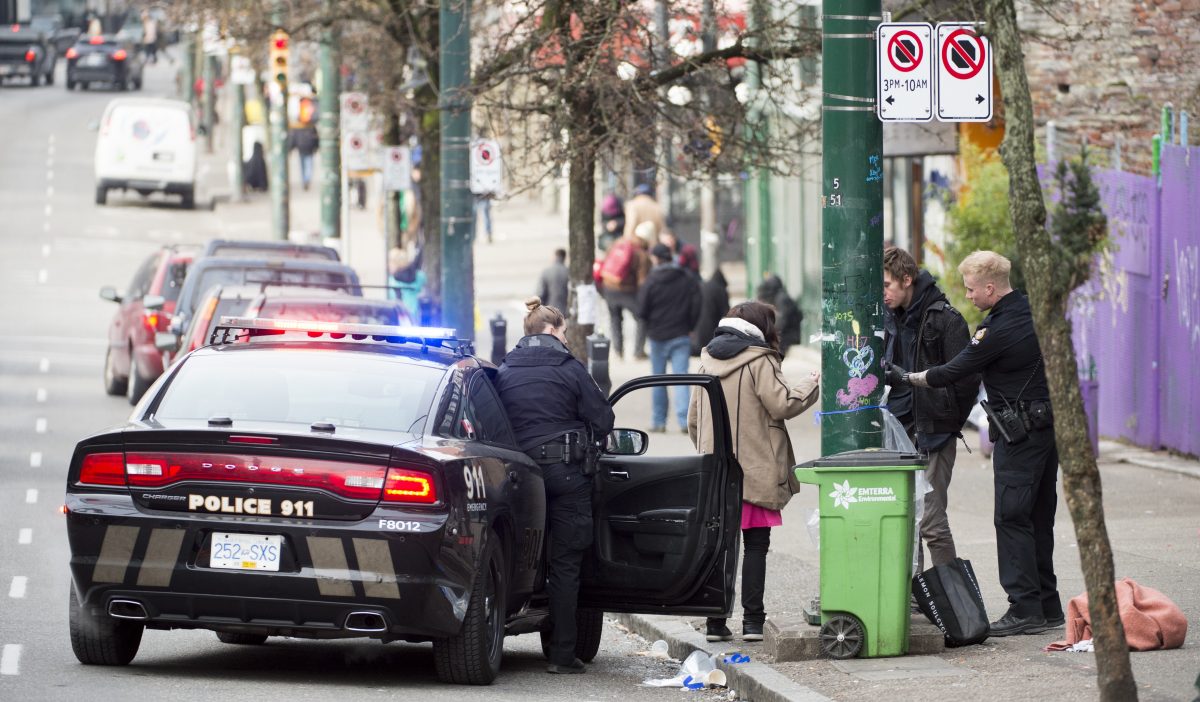Vancouver should have a safe drug supply to help curb overdose deaths and combat the opioid crisis, a task force created by the city’s mayor recommended this week.

The recommendation is one of eight included in a staff report presented to city council Tuesday, which calls on the federal government to ensure that safe supply and provide more money to help those at risk.
The staff report says 14 actions have been completed from the city’s original Mayor’s Overdose Emergency Task Force, which was approved by council in December. Progress has been made on 16 more from that report.
WATCH: (Aired April 24) B.C.’s top doctor calls for decriminalization of possession of street drugs

The eight new recommendations come from a specialized team of front-line workers, residents and city officials, staff noted.
Those proposals include issuing a statement declaring a “drug poisoning crisis,” as well as support for drug policy reforms that could pave the way for creation of a safe drug supply.
The task force is also seeking more than $3 million in additional federal funding to bolster existing overdose prevention strategies in Vancouver.
Mayor Kennedy Stewart says immediate action needs to be taken to prioritize a safe, regulated drug supply while also increasing investments in services aimed at preventing overdoses.
“Vancouver has never shied away from its leadership role in advancing harm-reduction policies and safe supply is no different,” Stewart says in a statement.
WATCH: (Aired May 15) Illicit drug deaths down, but totals still staggering

Al Fowler, vice-president of the BC Association of People on Opiate Maintenance, said in a news release that creation of a safe supply is key because prohibition turns illegal substances into money-making ventures for dealers who have little regard for the safety of drug users.
“It’s our family and friends dying, and we need action not just words. We need to move on creating a safe supply before it’s too late,” Fowler says.
The City of Vancouver has approved $103,500 for a strategy that would improve response times to overdoses and is seeking $2 million in federal investments to offer help for those at risk, especially to improve overnight service.
- Three B.C. men fined, banned from hunting after killing pregnant deer
- B.C. child-killer’s attempt to keep new identity secret draws widespread outrage
- Inquest hears B.C. hostage was lying on her captor before fatal shooting
- ‘We’ve had to make a 180’: What Oregonians say they got wrong with decriminalization
The task force also calls for a further $1.3 million in federal funding for the Vancouver School Board so youth programs that prevent, delay and reduce substance use related issues can continue.
The latest numbers from the BC Coroners Service said while overdose deaths are continuing to fall compared to last year across B.C., fentanyl-related deaths are on the rise.
The deadly drug was detected in 83 per cent of all drug deaths in the first five months, compared to 87 per cent for the same period in 2018 — marking just a four per cent drop.
Vancouver city council recently approved a motion looking at making medical-grade cannabis more accessible to people in the Downtown Eastside who want to curb their addictions to opiates.
The motion cited studies and community advocates that found marijuana can help wean addicts off harder drugs and handle related pain and stress.
Staff is currently reviewing the motion and are tasked with delivering a report back to council.
— With files from the Canadian Press




Comments